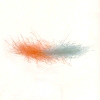
In Stock
Quantity in Basket: None
Log In to use our Wish List
Shipping Weight: 5.00 units
EU & UK Customers:
Discogs.com can handle your VAT payments
So please order through Discogs
Sample The Album:
John Tilbury-piano, prepared piano, organ
Eddie Prevost-drums, stringed barrel, tam-tam and other percussion
Click an artist name above to see in-stock items for that artist.
UPC: 786497545926
Label: Matchless
Catalog ID: MRCD58
Squidco Product Code: 4228
Format: CD
Condition: New
Released: 2004
Country: Great Britain
Packaging: Jewel Tray
Recorded at Gateway Studios, Kingston-upon-Thames, England on January 6th, 2004.
"I don't know any details about either the studio session that took place on January 6th, 2004 between keyboardist John Tilbury and percussionist Eddie Prevost, or the process by which the resulting tapes became discrete moments. This makes it a bit difficult for me to know how to proceed. The recording is over 75 minutes long and consists of eight cuts of widely varying length. Most of the music is exquisitely beautiful-as beautiful, in my humble opinion, as anything else you are likely to hear this year. Unfortunately, somewhere around ten minutes of it isn't much good at all. Now, if Tilbury and Prevost had put out an absolutely perfect 65-minute (or even 55-minute) disc-say just by excluding the meandering third track-people might be whispering things involving "recording of the decade" or "pinnacle of their careers." I have a sense, however (in spite of my above-admitted absence of actual information about this recording), of why this track was included in the final product.It has a very cool final minute that sounds as if it might have come from an early Cage piece for prepared piano. There was no way to retain that clunkily wonderful coda while scuttling the rest of the cut, so (perhaps at the last moment?) it was decided to keep the whole 11:18 piece intact and put out a very long album. I believe that this was a mistake, but, as is quite well known, it is now pretty easy to program CD players to skip this or that section of a recording-at least when the artists are kind enough to provide reference points on their discs. Let us therefore proceed as if there were no track entitled "S" and discuss only the absolutely terrific remaining discrete moments. Tilbury plays organ as well as piano (and prepared piano) here, and it is interesting to note the great extent to which he tailors his playing to his instrument. Much of his work on piano utilizes a technique that is entirely appropriate for the great 1950s piano pieces by Feldman and Cage (more Cagehere than I'm used to from him). But on organ Tilbury adopts the Palestine/Ligeti approach of holding chords or tones for a very long time and letting the strangely irregular internal pulses that result do the hypnotizing. He understands, that is, the difference between a ringing stringed percussion instrument and a keyboard simulacrum of a wind instrument. As one might expect, he's great on both horns: he seems to have a perfect knack for landing on just those pitches, rhythms, and sounds that will produce the perfect effect. His remarkable touch is at work here, of course, but there's a deep wisdom evident too. Prevost brings his arsenal of percussion, traps, tam-tam, stringed barrel and bows, and, as always, he knows how to get the most out of each one. The long cymbal hisses he creates to accompany some of Tilbury's high-pitched drones would give Nakamura a run for his money. Unsurprisingly, Prevost's high degree of sensitivity and consummate skill is a pretty good combinationwhen it comes to improvised music. Naturally, it also helps that these guys have been playing together since long before many of Bagatellen's most avid readers were born. Some of their music is delicate and pointillistic with wide spaces between sounds, but there are also rich, thick webs and, as indicated, Cage/Kleeube Goldberg thunkity-thunk machines. The two men also provide a hefty helping of what seems to me missing from too many of the "non-I" recordings I hear: drama. (For those who don't like drama, there's sonic variety-which may or may not be acceptable these days: I don't know.) For all its multiplicity, however, unlike Tilbury's recent fiasco with Tippett and Riley, the vision is constant and coherent throughout. discrete moments is so so beautiful."-Walter Horn, bagatellen.com
Artist Biographies
• Show Bio for John Tilbury "John Tilbury (born 1 February 1936) is a British pianist. He is considered one of the foremost interpreters of Morton Feldman's music, and since 1980 has been a member of the free improvisation group AMM. Tilbury studied piano at the Royal College of Music with Arthur Alexander and James Gibb and also with Zbigniew Drzewiecki in Warsaw. 1968 he was the winner of the Gaudeamus competition in the Netherlands. During the 1960s, Tilbury was closely associated with the composer Cornelius Cardew, whose music he has interpreted and recorded and a member of the Scratch Orchestra. His biography of Cardew, "Cornelius Cardew - A life unfinished" was published in 2008. Tilbury has also recorded the works of Howard Skempton and John White, among many others, and has also performed adaptations of the radio plays of Samuel Beckett. With guitarist AMM bandmate Keith Rowe's electroacoustic ensemble M.I.M.E.O., Tilbury recorded The Hands of Caravaggio, inspired by the painter's The Taking of Christ {1602). In this live performance, twelve of the members of M.I.M.E.O. were positioned around the piano in a deliberate echo of Christ's Last Supper. The thirteenth M.I.M.E.O. member (Cor Fuhler) is credited with "inside piano" as he interacted and interfered with Tilbury's playing by manipulating and damping the instrument's strings, essentially doing piano preparation in real time. Critic Brian Olewnick describes the album as "A staggering achievement, one is tempted to call The Hands of Caravaggio the first great piano concerto of the 21st century." Another notable recent recording of Tilbury's was Duos for Doris (like The Hands of Caravaggio also on Erstwhile Records), a collaboration with Keith Rowe. It is widely considered a landmark recording in the genre of electroacoustic improvisation (or "EAI"). In 2013 he collaborated with artist Armando Lulaj in FIEND performance at the National Theatre of Tirana (Albania)." ^ Hide Bio for John Tilbury
7/1/2025
Have a better biography or biography source? Please Contact Us so that we can update this biography.
Track Listing:
1. D 9:50
2. T 10:11
3. S 11:18
4. R 18:42
5. C 8:55
6. E1 0:21
7. I 7:37
8. E2 7:35
Free Improvisation
Duo Recordings
Before April-2006
Instruments with Preparations
Improvised Music
European Improvisation, Composition and Experimental Forms
Matchless
Free Improvisation
Duo Recordings
Before April-2006
Instruments with Preparations
Search for other titles on the label:
Matchless.




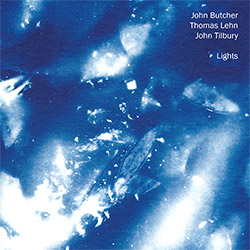

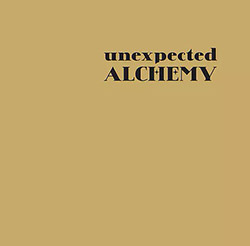

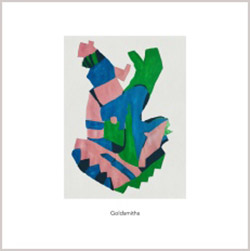

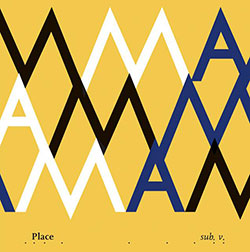

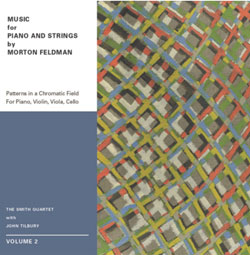

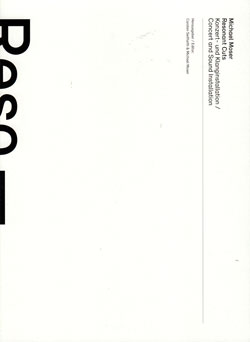
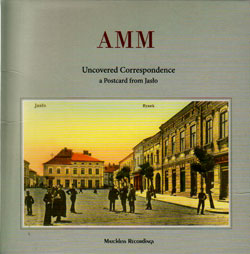
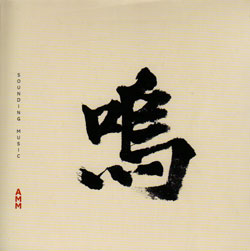
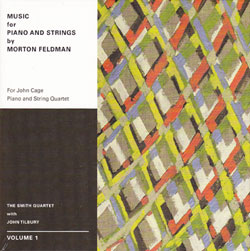
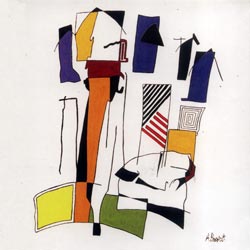
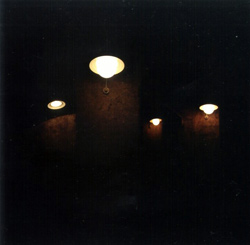

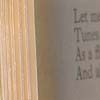

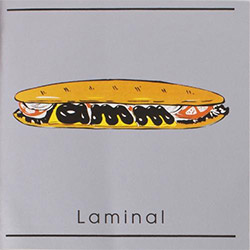
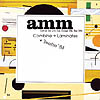

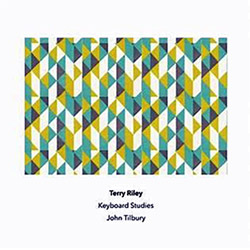











![Deupree, Jerome / Sylvie Courvoisier / Lester St. Louis / Joe Morris: Canyon [2 CDs]](https://www.teuthida.com/productImages/misc4/36404.jpg)


![Eternities: Rides Again [CASSETTE]](https://www.teuthida.com/productImages/misc4/36247.jpg)

![Lopez, Francisco: Untitled (2021-2022) [2 CDs]](https://www.teuthida.com/productImages/misc4/36438.jpg)




![Eventless Plot | Haarvol: The Subliminal Paths [CASSETTE + DOWNLOAD]](https://www.teuthida.com/productImages/misc4/36232.jpg)












![Eventless Plot | Francesco Covarino: Methexis [CASSETTE + DOWNLOAD]](https://www.teuthida.com/productImages/misc4/36231.jpg)



![Das B (Mazen Kerbaj / Mike Majkowski / Magda Mayas / Tony Buck): Love [VINYL]](https://www.teuthida.com/productImages/misc4/36329.jpg)



![Hemphill Stringtet, The: Plays the Music of Julius Hemphill [VINYL]](https://www.teuthida.com/productImages/misc4/36409.jpg)



![Halvorson, Mary Septet: Illusionary Sea [2 LPS]](https://www.teuthida.com/productImages/misc4/17952.jpg)






![Money : Money 2 [2 CDs]](https://www.teuthida.com/productImages/misc4/35894.jpg)




![Klinga, Erik: Elusive Shimmer [VINYL]](https://www.teuthida.com/productImages/misc4/36258.jpg)
![CHANGES TO blind (Phil Zampino): Volume 9 - I Wave on a Fine Vile Mist [CD + DOWNLOAD]](https://www.teuthida.com/productImages/misc4/36061.jpg)

![Wallmart / Rubbish: Asset Protection [split CD]](https://www.teuthida.com/productImages/misc4/35900.jpg)


![+Dog+: The Family Music Book Vol. 5 [2 CDs]](https://www.teuthida.com/productImages/misc4/35897.jpg)
![Kuvveti, Deli : Kuslar Soyledi [CASSETTE w/ DOWNLOAD]](https://www.teuthida.com/productImages/misc4/36107.jpg)

![Nakayama, Tetsuya: Edo Wan [CASSETTE w/ DOWNLOAD]](https://www.teuthida.com/productImages/misc4/36105.jpg)




![Yiyuan, Liang / Li Daiguo: Sonic Talismans [VINYL]](https://www.teuthida.com/productImages/misc4/35957.jpg)
![Brown, Dan / Dan Reynolds: Live At The Grange Hall [unauthorized][CASSETTE]](https://www.teuthida.com/productImages/misc4/36245.jpg)








![Palestine, Charlemagne / Seppe Gebruers: Beyondddddd The Notessssss [VINYL]](https://www.teuthida.com/productImages/misc4/36206.jpg)
![Palestine, Charlemagne / Seppe Gebruers: Beyondddddd The Notessssss [NEON GREEN VINYL]](https://www.teuthida.com/productImages/misc4/36207.jpg)

![Laubrock, Ingrid: Purposing The Air [2 CDs]](https://www.teuthida.com/productImages/misc4/35639.jpg)

![Yoko, Ono / The Great Learning Orchestra: Selected Recordings From Grapefruit [2 CDs]](https://www.teuthida.com/productImages/misc4/35841.jpg)









![Zorn, John / JACK Quartet: The Complete String Quartets [2 CDs]](https://www.teuthida.com/productImages/misc4/35609.jpg)

![Lonsdale, Eden: Dawnings [2 CDs]](https://www.teuthida.com/productImages/misc4/35480.jpg)



![Sorry For Laughing (G. Whitlow / M. Bates / Dave-Id / E. Ka-Spel): Rain Flowers [2 CDS]](https://www.teuthida.com/productImages/misc4/35985.jpg)

![Rolando, Tommaso / Andy Moor : Biscotti [CASSETTE w/ DOWNLOADS]](https://www.teuthida.com/productImages/misc4/36106.jpg)


![Electric Bird Noise / Derek Roddy: 8-10-22 [CD EP]](https://www.teuthida.com/productImages/misc4/35970.jpg)








![Elephant9 : Mythical River [VINYL]](https://www.teuthida.com/productImages/misc4/34624.jpg)



![Elephant9 with Terje Rypdal: Catching Fire [VINYL 2 LPs]](https://www.teuthida.com/productImages/misc4/35355.jpg)
![Deerlady (Obomsawin, Mali / Magdalena Abrego): Greatest Hits [VINYL]](https://www.teuthida.com/productImages/misc4/34876.jpg)







![Surplus 1980: Illusion of Consistency [CD]](https://www.teuthida.com/productImages/misc4/35069.jpg)
![Staiano, Moe: Away Towards the Light [VINYL + DOWNLOAD]](https://www.teuthida.com/productImages/misc4/35037.jpg)
![Coley, Byron: Dating Tips for Touring Bands [VINYL]](https://www.teuthida.com/productImages/misc4/17906.jpg)

![Lost Kisses: My Life is Sad & Funny [DVD]](https://www.teuthida.com/productImages/misc4/lostKissesDVD.jpg)